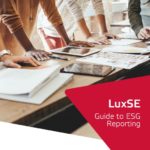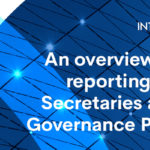
Singapore Exchange (SGX) will be introducing sustainability reporting on a “comply or explain” basis and is inviting public comment on the proposed rules and guide. This marks further progress from the voluntary reporting that has been in place since 2011, and is a timely response to the growing global interest in sustainability information.
Sustainability reporting complements financial reporting with the environmental, social and governance (ESG) aspects of business and strategy, to give investors better insight into the companies they invest in. This enables investors to more comprehensively assess a company’s prospects and quality of management. The increased disclosure enhances transparency and builds investor understanding and trust over time.
SGX’s survey of institutional investors in June 2015 found that over 90% of respondents consider ESG factors when investing.
The “comply or explain” approach to sustainability reporting gives companies the latitude of reporting in the way which best suits their industry and circumstances. In the reports, companies describe what they do to manage material ESG risks and business opportunities.
In its consultation, SGX is seeking comments on several proposals. Specifically, issuers will have to include 5 primary components in a sustainability report, as follows:
a. Identification of material ESG factors, giving reasons for their choice and a description of the process of selection.
b. Policies, practices and performance of the company in relation to each of the material ESG factors, in both descriptive and quantitative terms. Performance should be discussed in the context of any previously disclosed targets.
c. Targets for the forthcoming year.
d. A chosen reporting framework to guide the disclosure of relevant information on the ESG factors. Using an internationally recognised or industry-relevant framework enhances acceptance and comparability.
e. A statement of the board confirming compliance with the primary components or description of any alternative practices with reasons for preferring them.
SGX is also consulting on the following:
a. That companies report only material ESG factors.
b. That reports be published within 5 months from the end of each financial year.
c. Whether anti-corruption and diversity aspects, which are receiving global attention, should be included as a primary component in a sustainability report.
d. The roles and responsibilities assigned to the Board with regards to sustainability reporting.
Loh Boon Chye, CEO of SGX, said, “Sustainability reporting builds on transparency and governance for which Singapore is internationally recognised. It addresses investor demand for quality returns and gives companies the opportunity to differentiate themselves. We appreciate the input from companies and investors in earlier surveys and have incorporated many of these into our draft Guide. We look forward to working with industry partners to ensure all companies are catered for as they develop sustainability reporting capabilities.”
SGX expects the new rules and guide on sustainability reporting to apply to companies from the financial year ending on, or after 31 December 2017, with reports published from 2018.



